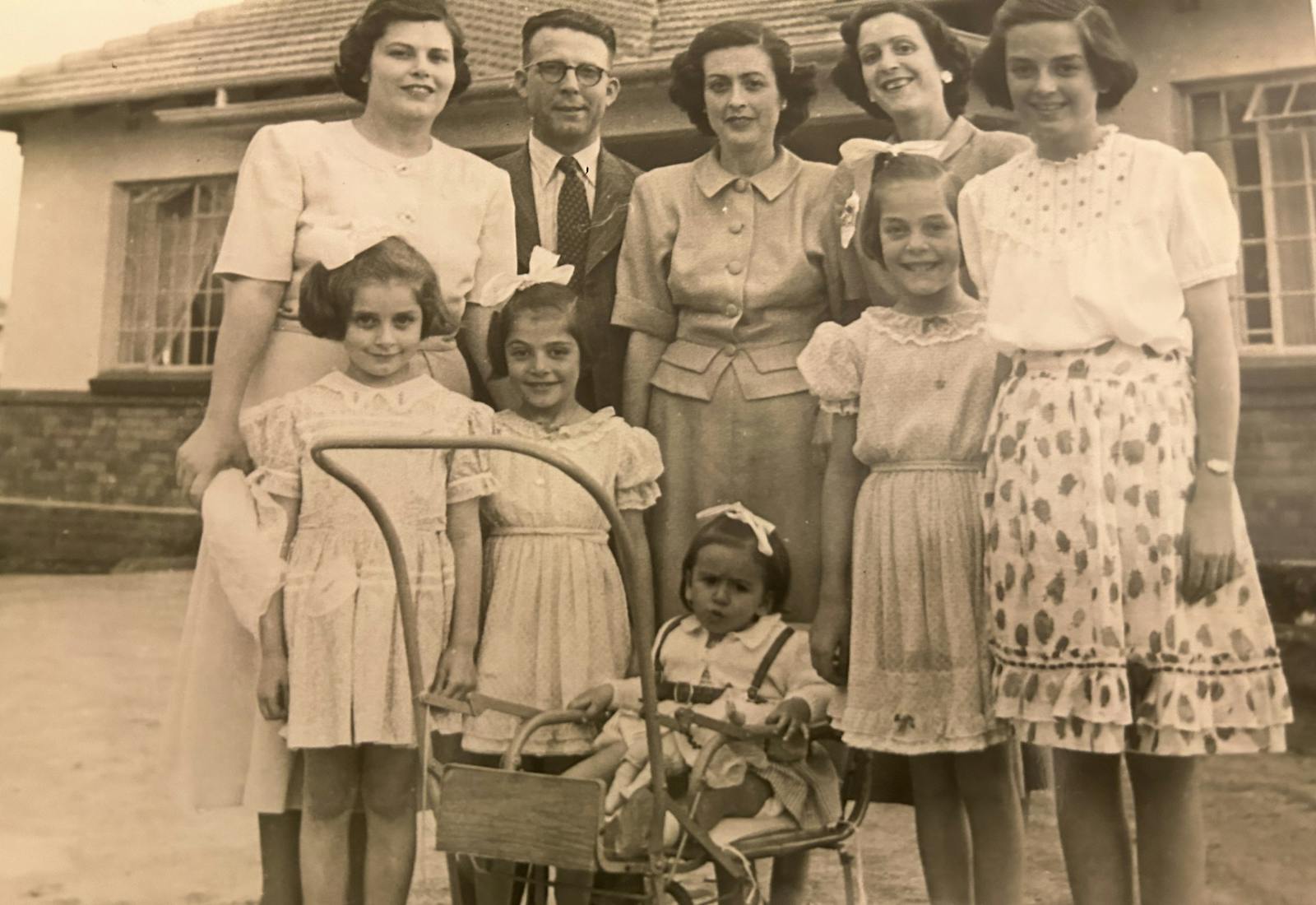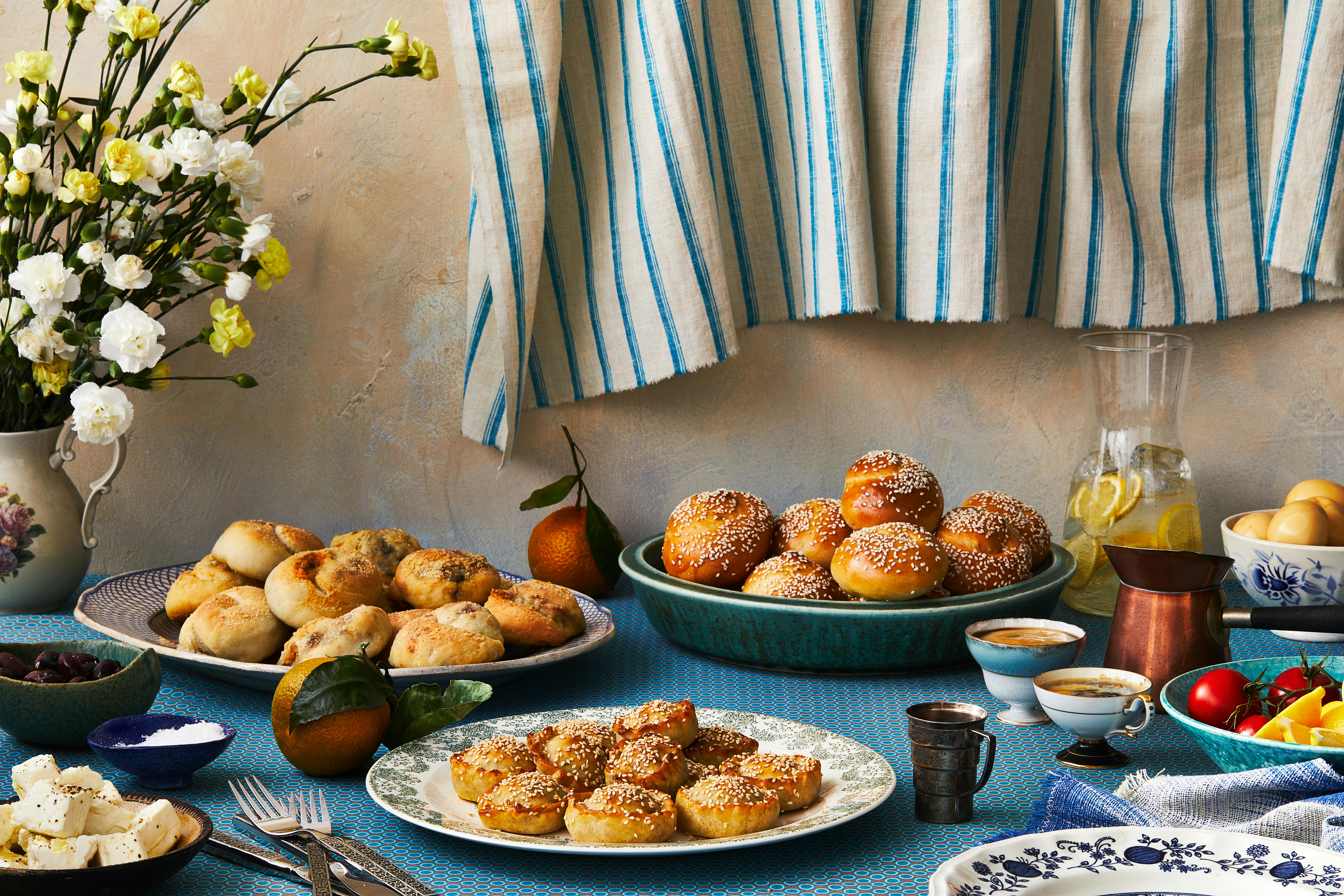Shared by Lisa and Vivienne Capelouto


Lisa Capelouto remembers the women in her community gathering when she was little to make phyllo dough at her grandmother’s home in what was Rhodesia, now Zimbabwe. “They would stand around the table and pull and pull until they got this pastry thin enough. And then each one would take their own portion home,” she says.
A generation earlier, her mother Vivienne remembers: “Every Friday, I think every Sephardi woman made some sort of savory pastry.” They were served on Shabbat mornings for desayuno, the Spanish and Ladino word for breakfast. Depending on the week and baker’s preference, there might be flakey snail-shaped pastries called boyos filled with spinach and feta, savory eggplant pastelikos, or yeast rolls with orange blossom water known as roskas served alongside long cooked eggs or haminados, feta, and olives.
For generations, these recipes weren’t written down and measuring cups weren’t the standard units, instead, many women in their community used Turkish coffee cups. Their hands knew the ways of Sephardic cooking from Rhodes, a Greek Island near the coast of Turkey, and Spain before that. (Lisa notes that there were also some Jews on Rhodes from Venice, which is where her last name is from. Her mother’s maiden name is Leon, from the León province in northern Spain.)
During the Spanish expulsion, like many Sephardi Jews, their family fled to what was then the Ottoman Empire. On Rhodes, they built a strong Jewish community where customs and traditions from Spain, as well as Ladino, were preserved for several centuries. But, starting at the end of the 19th century, men from the community began to migrate to Africa in search of economic opportunities, settling in the Congo and Rhodesia.
Vivienne’s uncle — her father’s eldest brother — was among them. He arrived in 1902 and brought several of his siblings in the following years. “The whole community, slowly, slowly from Rhodes, began to move. And eventually they were all scattered, running small businesses often in mining towns,” she explains. Tragically, the Jews who remained in Rhodes were deported to Auschwitz during the war where many perished. One of Vivienne’s grandmothers was on the last boat to leave Rhodes for Africa in 1942.
Vivienne was born the next year and when she was a child, there was a strong, well established Sephardi presence in Salisbury, the capital, which is now Harare. “We grew up in a very warm community. It was almost like they recreated the community in Rhodes in Rhodesia. It was very special,” she says.
Life cycle events like weddings and bar mitzvahs were celebrated with everyone and women would gather before them to make fresh marzipan, baklava, and other sweets together. In the early days, they baked at someone’s home, but when the community built a synagogue with a kitchen, the cooking festivities migrated there. “And the older woman taught the younger ones,” Vivienne explains.
More than half a century later, those intricate culinary traditions and recipes are starting to fade. “It’s really getting lost,” Lisa explains. “There’s no Stella of our generation,” she says referring to cookbook author Stella Hanan Cohen, who documented many of these recipes in her beautiful book “Stella's Sephardic Table: Jewish Family Recipes from the Mediterranean Island of Rhodes.”
But during the pandemic, Vivienne helped reverse that tide with cooking lessons. A handful of cousins from New York to Belgium, South Africa, and Israel gathered on Zoom with her to learn to make a few of the community’s signature foods. “People from literally all over the world [joined] — we all did it together,” Lisa says. Vivienne sent out shopping lists for ingredients and told everyone what to prepare in advance. And with the help of Lisa’s father who held up the phone at times, they made pastelikos, borekitas, boyos, and other dishes together. Not everyone’s pastries came out as beautifully as the ones Vivienne makes, concedes Lisa. “I mean, she's really the queen.” But it was a start.
A year later, one of Vivienne’s nieces asked for a refresher and the two of them met over Facetime. “I felt a gratitude that I could pass it on — and that there was this technology that enabled us to do it,” she says.
